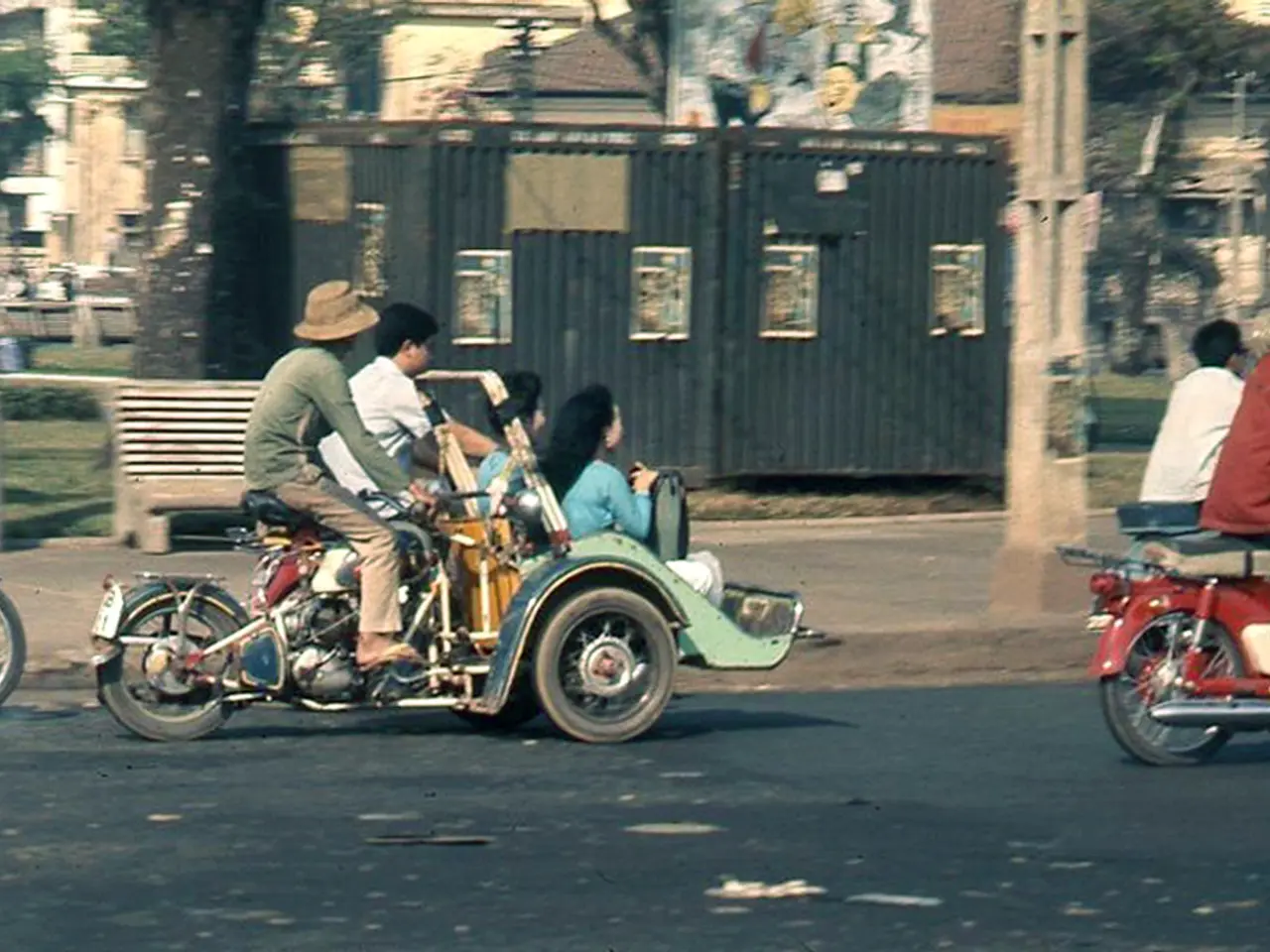Maruti Suzuki transported over half a million vehicles via rail in the fiscal years 2024-2025.
Maruti Suzuki Expands Rail-Based Distribution and Reduces Carbon Emissions
Maruti Suzuki India, the country's leading automobile manufacturer, has made significant strides in enhancing its manufacturing capabilities and reducing carbon emissions.
The company's Manesar plant now boasts a total manufacturing capability of 900,000 vehicles per year, thanks to the addition of a new assembly line with an annual capacity of 100,000 units.
In a bid to reduce carbon emissions, Hisashi Takeuchi, the Managing Director and CEO of Maruti Suzuki India, has emphasised that the company is prioritising the reduction of emissions, not just in its products but also in its operations.
Maruti Suzuki has taken a significant step towards eco-friendly transportation by opening India's first in-plant railway siding at its Gujarat assembly plant. This innovative infrastructure serves 15 destinations across the country.
The in-plant railway siding at the Gujarat assembly plant is a result of a collaboration between Maruti Suzuki India, Gujarat Rail Infrastructure Development (G-Ride), the Government of Gujarat, Indian Railways, and Gujarat Industrial Development Corporation (GIDC).
Maruti Suzuki was the first company in India to obtain an Automobile Freight Train Operator (Afto) license in 2013, and since then, the company has dispatched nearly 2.4 million vehicles through the rail mode, saving 180,000 tonnes of CO emissions and 630 million litres of fuel.
The company is now planning to increase the share of vehicle dispatches through railways to 35% by FY 2030-31. Currently, Maruti Suzuki uses 40 flexible deck auto rakes, each with a capacity for around 300 vehicles per journey, to move vehicles by rail.
In the last financial year (2024-2025), Maruti Suzuki reported moving over 500,000 vehicles by rail, accounting for approximately a quarter of its total distribution. The in-plant railway siding at the Gujarat assembly plant has an annual capacity to dispatch 300,000 vehicles by rail.
Maruti Suzuki is also working on an in-plant railway siding at its Manesar plant. The company is using rail to move vehicles to the ports of Mundra and Pipavav for export, contributing to a nearly eight-fold increase in vehicles dispatched by rail.
Maruti Suzuki dispatches vehicles to more than 20 hubs using rail, serving over 600 cities across India. The in-plant railway siding at the Gujurat assembly plant serves 15 destinations across India.
While there is no information available regarding Hisashi Takeuchi obtaining an Afto license in India, Maruti Suzuki was the first company in India to receive this license in 2013. The company's commitment to eco-friendly transportation and reduction of carbon emissions continues to set a high standard in the Indian automobile industry.
Read also:
- Antitussives: List of Examples, Functions, Adverse Reactions, and Additional Details
- Asthma Diagnosis: Exploring FeNO Tests and Related Treatments
- Revitalizing Wisconsin Point Peninsula within the St. Louis River Estuary's Ecosystem Conservation Zone
- Day's Agenda for 'Tour dementia': Action Plan for Family Members and Affected Individuals, Details of the Day's Event








